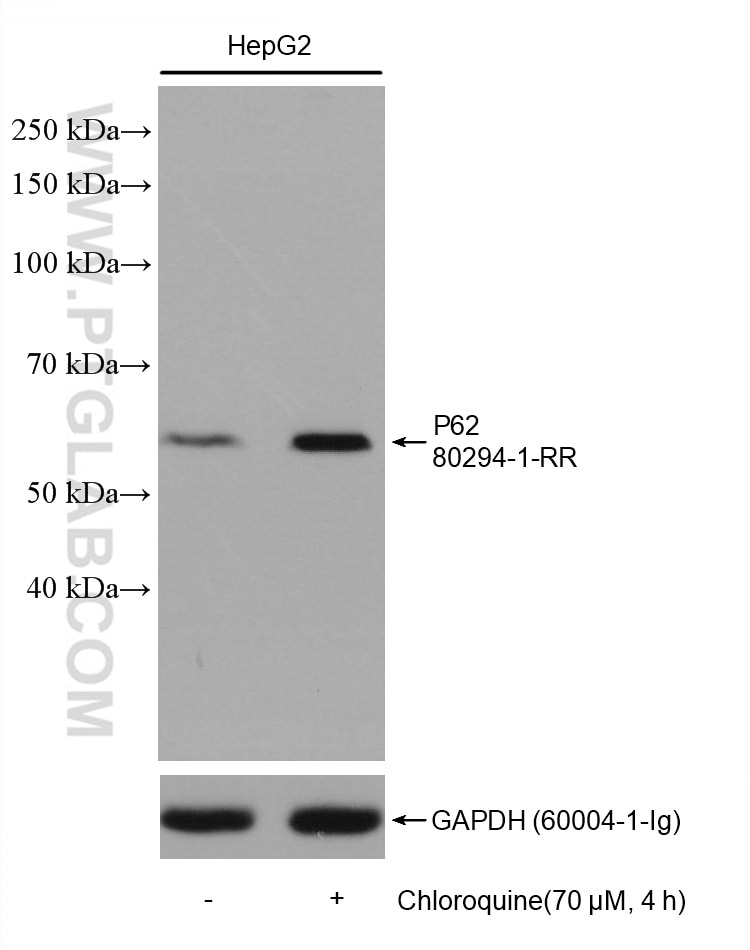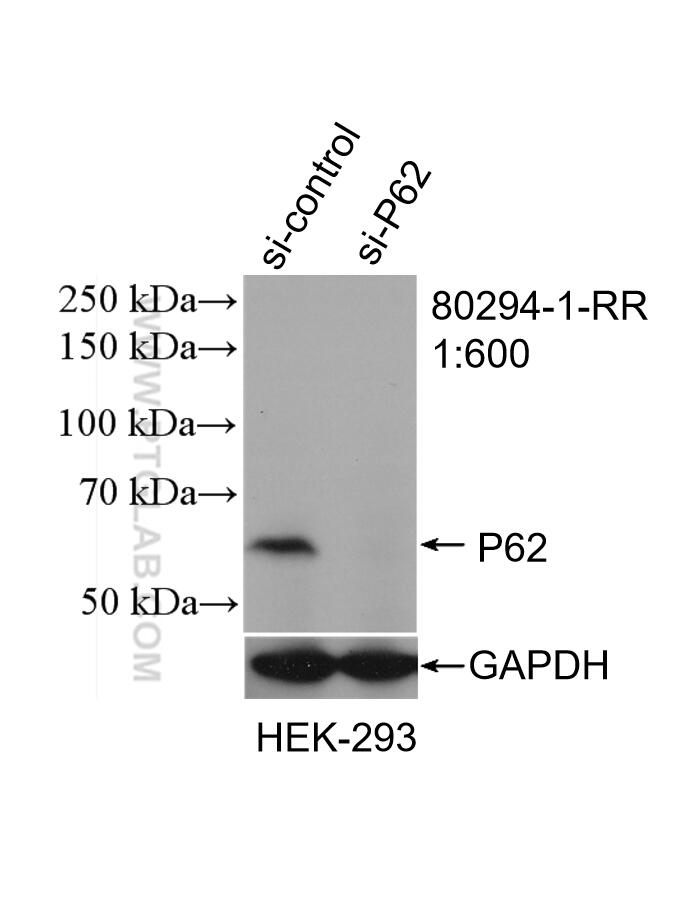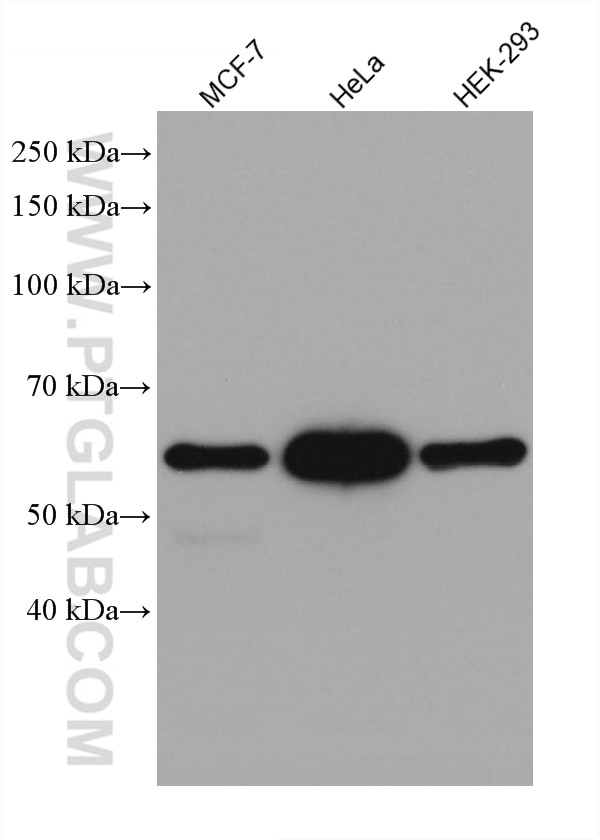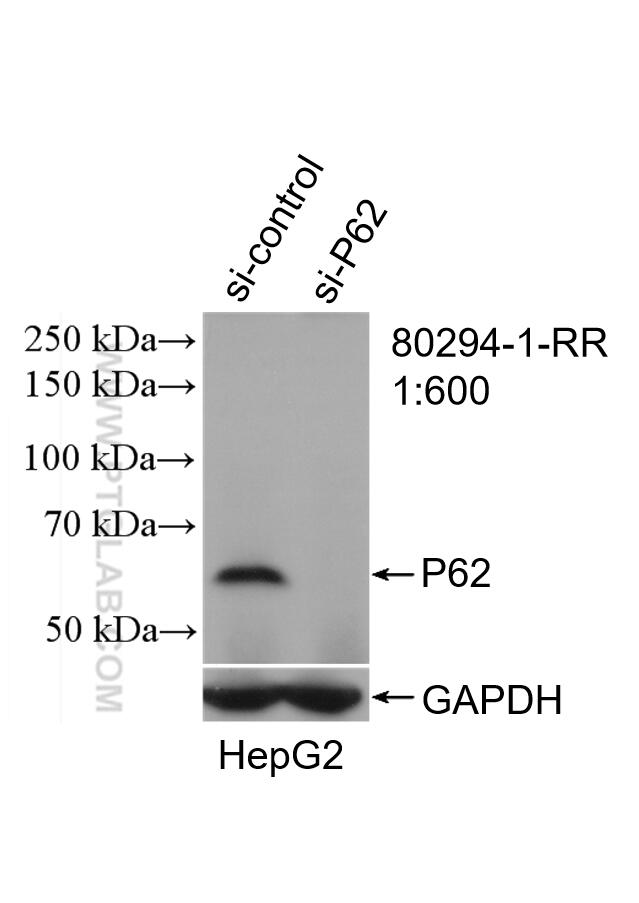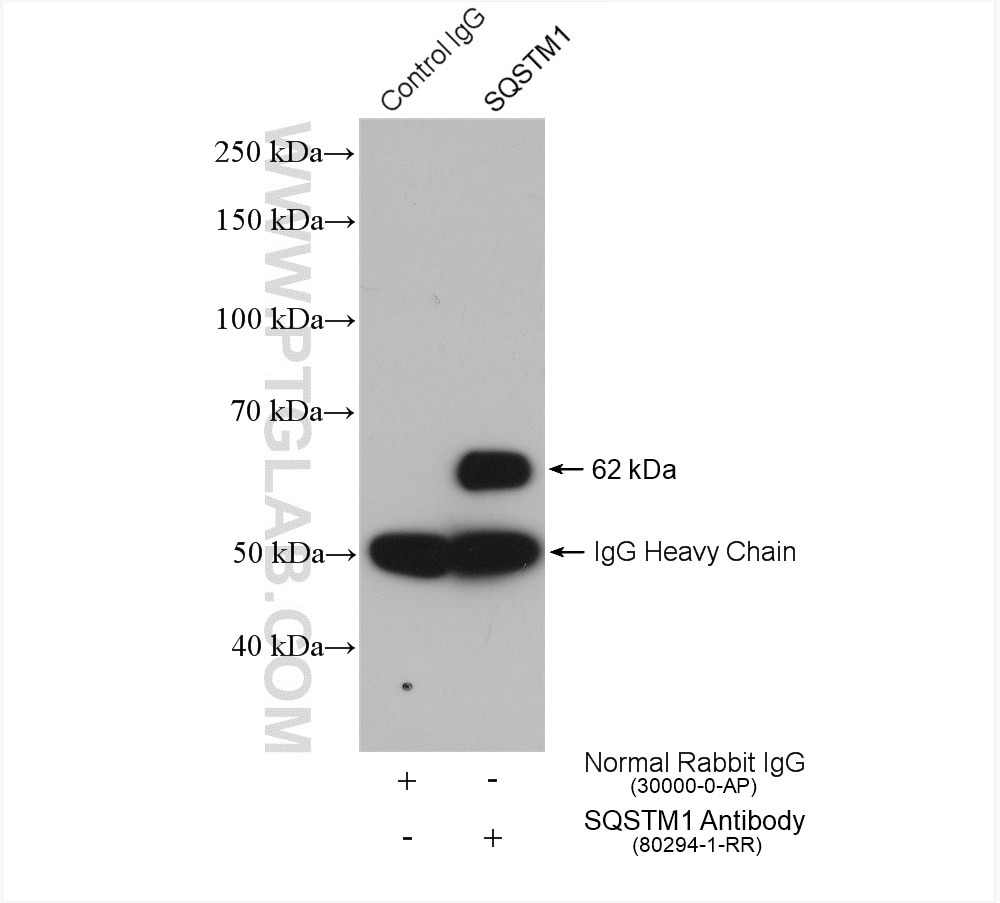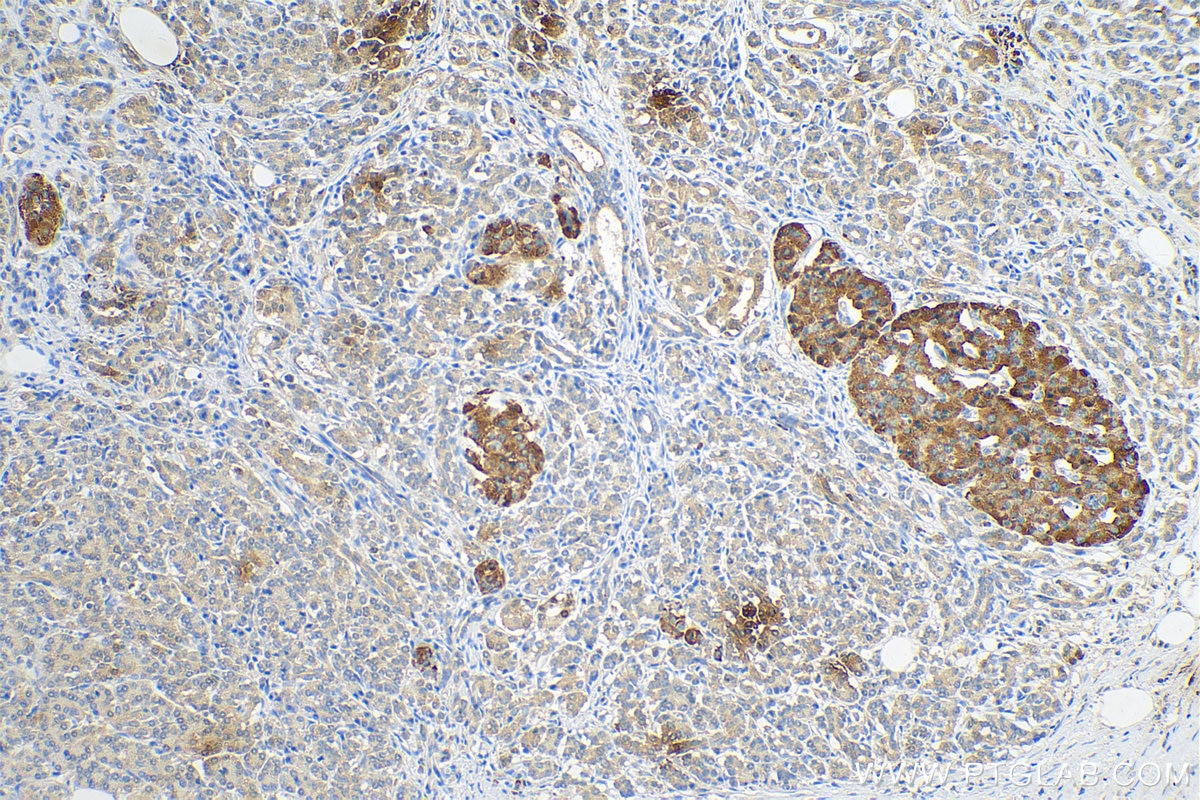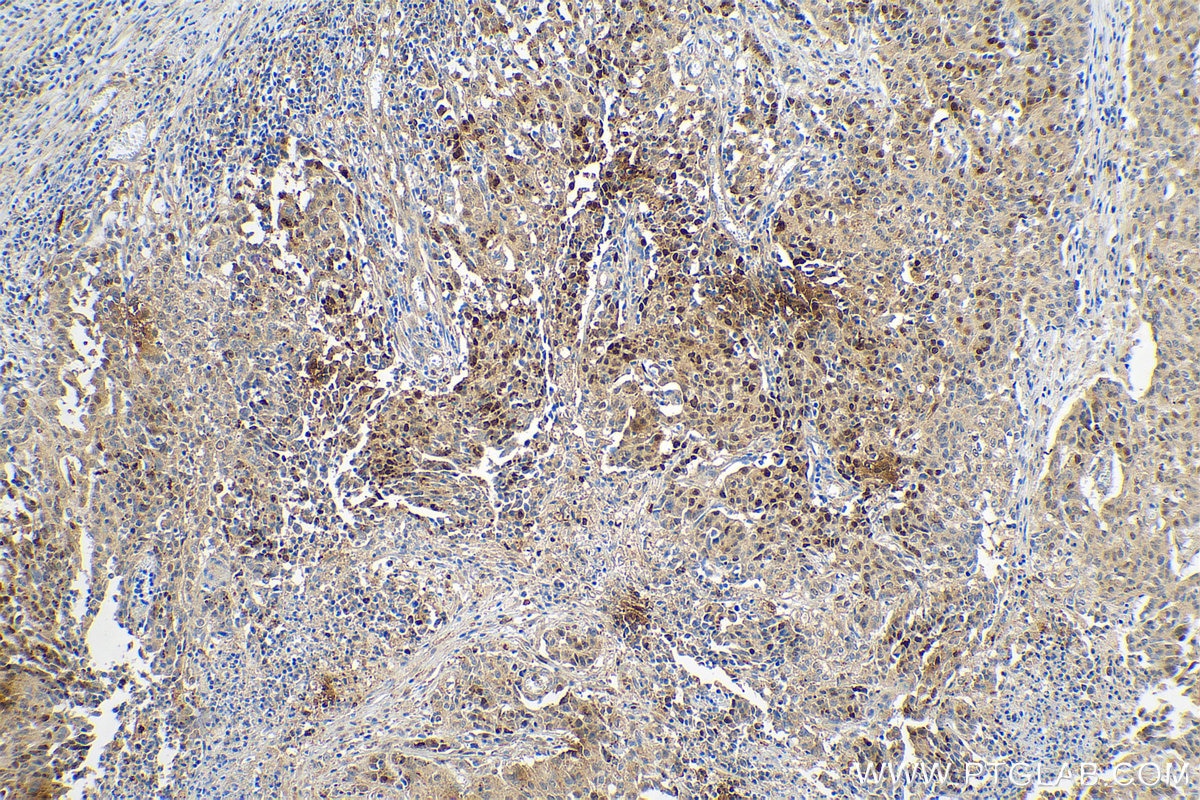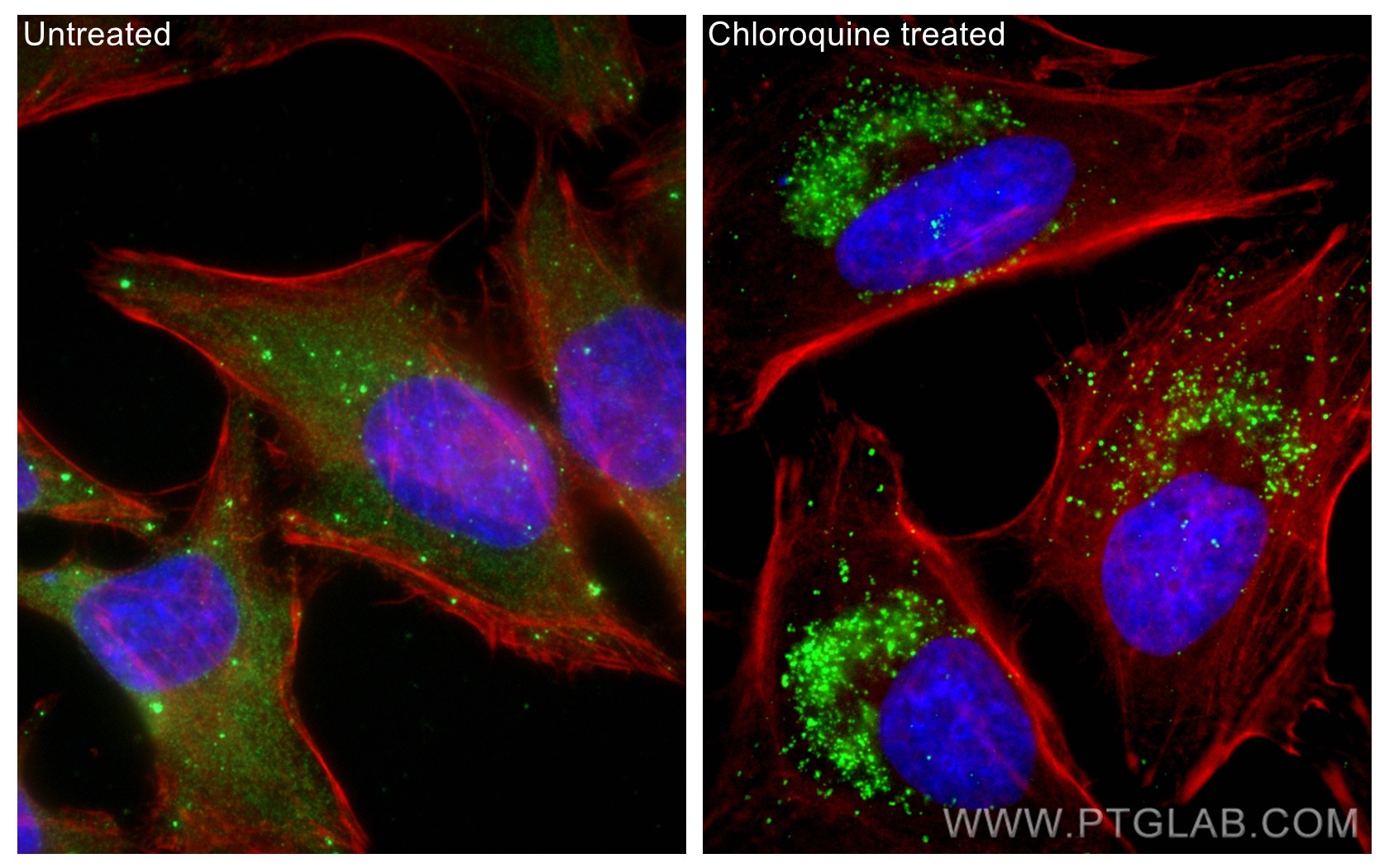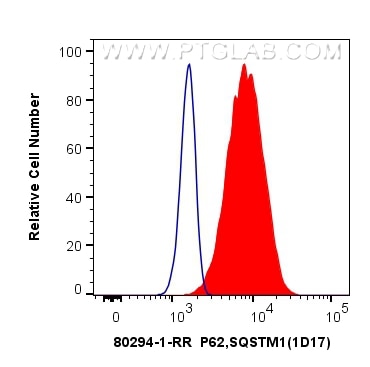Validation Data Gallery
Tested Applications
Recommended dilution
| Application | Dilution |
|---|---|
| It is recommended that this reagent should be titrated in each testing system to obtain optimal results. | |
Product Information
80294-1-PBS targets P62,SQSTM1 in WB, IHC, IF/ICC, FC (Intra), IP, Indirect ELISA applications and shows reactivity with human samples.
| Tested Reactivity | human |
| Host / Isotype | Rabbit / IgG |
| Class | Recombinant |
| Type | Antibody |
| Immunogen | P62,SQSTM1 fusion protein Ag13131 相同性解析による交差性が予測される生物種 |
| Full Name | sequestosome 1 |
| Calculated molecular weight | 48 kDa |
| Observed molecular weight | 62 kDa |
| GenBank accession number | BC017222 |
| Gene Symbol | P62/SQSTM1 |
| Gene ID (NCBI) | 8878 |
| RRID | AB_2918883 |
| Conjugate | Unconjugated |
| Form | Liquid |
| Purification Method | Protein A purification |
| UNIPROT ID | Q13501 |
| Storage Buffer | PBS only , pH 7.3 |
| Storage Conditions | Store at -80°C. |
Background Information
Sequestosome 1 (SQSTM1/p62) is a multifunctional adaptor protein implicated in selective autophagy, cell signaling pathways, and tumorigenesis. p62 has been implicated in shuttling ubiquitinated and aggregated proteins for autophagic degradation. p62 is degraded during the autophagic process, which makes its intracellular level a marker for autophagy progression. p62 is at the cross-roads of several signaling pathways including Ras/ Raf/ MAPK and NFκB and plays important role in cancer. p62 is a component of inclusion bodies/ protein aggregates found in human diseases, including Huntington's disease, Alzheimer's disease, Parkinson's disease, and nephropathic cystinosis (PMID: 22074114, 22860231, 22714671).
